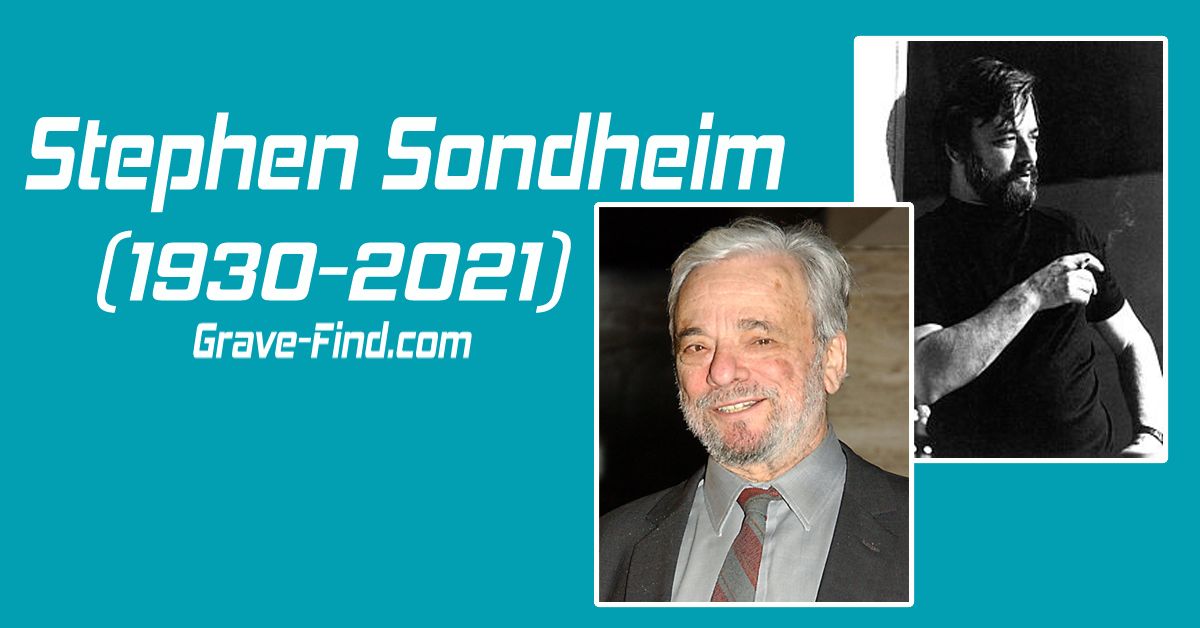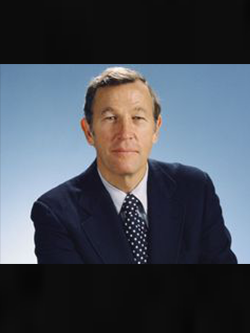Stephen Sondheim (1930-2021) American Composer
Stephen Sondheim (1930-2021) American Composer, Stephen Sondheim diest at 91 years 26 November 2021
| Name | Stephen Sondheim |
| Full Name | Stephen Joshua Sondheim |
| Age | 91 Years |
| Birth | 22 March 1930 |
| Birthplace | New York, New York County (Manhattan), New York,, United States |
| Death | 26 November 2021 |
| Deathplace | Roxbury, Litchfield County, Connecticut, USA |
| Profession | Composer and lyricist |
| Burial | |
| Nationality | American |
Stephen Sondheim American Composer (1930-2021)
Stephen Joshua Sondheim was an American composer and lyricist. Among the most important figures in 20th-century musical theater, Sondheim was praised for having “reinvented the American musical” with shows that tackled “unexpected themes that range far beyond the [genre’s] traditional subjects” with “music and lyrics of unprecedented complexity and sophistication”. His shows addressed “darker, more harrowing elements of the human experience” with songs often tinged with “ambivalence” about various aspects of life.
Sondheim started his theatre career by writing the lyrics for West Side Story (1957) and Gypsy (1959) before becoming a composer and lyricist. Sondheim’s best-known works include A Funny Thing Happened on the Way to the Forum (1962), Company (1970), Follies (1971), A Little Night Music (1973), Sweeney Todd: The Demon Barber of Fleet Street (1979), Merrily We Roll Along (1981), Sunday in the Park with George (1984), and Into the Woods (1987).
Sondheim’s accolades include eight Tony Awards (including a Lifetime Achievement Tony in 2008), an Academy Award, eight Grammy Awards, a Pulitzer Prize, a Laurence Olivier Award, and a 2015 Presidential Medal of Freedom. He has a theater named for him both on Broadway and in the West End of London. Sondheim wrote film music, contributing “Goodbye for Now” for Warren Beatty’s Reds (1981). He wrote five songs for 1990’s Dick Tracy, including “Sooner or Later (I Always Get My Man)”, sung in the film by Madonna, which won the Academy Award for Best Original Song. Film adaptations of Sondheim’s work include West Side Story (1961), Gypsy (1962), A Funny Thing Happened on the Way to the Forum (1966), A Little Night Music (1977), Gypsy (1993), Sweeney Todd: The Demon Barber of Fleet Street (2007), Into the Woods (2014), West Side Story (2021), and Merrily We Roll Along (TBD).
Stephen Sondheim (1930-2021) American Composer
Early life and education
Sondheim was born on March 22, 1930, into a Jewish family in New York City, the son of Etta Janet (“Foxy”; née Fox; 1897–1992) and Herbert Sondheim (1895–1966). His father manufactured dresses designed by his mother. The composer grew up on the Upper West Side of Manhattan and, after his parents divorced, on a farm near Doylestown, Pennsylvania. As the only child of well-to-do parents living in the San Remo at 145 Central Park West, he was described in Meryle Secrest’s biography (Stephen Sondheim: A Life) as an isolated, emotionally neglected child. When he lived in New York City, Sondheim attended the Ethical Culture Fieldston School. He spent several summers at Camp Androscoggin. His mother sent him to New York Military Academy in 1940. From 1942 to 1943, he attended George School, a private Quaker preparatory school in Bucks County, Pennsylvania, where he wrote his first musical, By George. From 1946 to 1950, Sondheim attended Williams College. He graduated magna cum laude and received the Hubbard Hutchinson Prize, a two-year fellowship to study music.
Sondheim traced his interest in theater to Very Warm for May, a Broadway musical he saw when he was nine. “The curtain went up and revealed a piano”, Sondheim recalled. “A butler took a duster and brushed it up, tinkling the keys. I thought that was thrilling.”
Sondheim detested his mother, who was said to be psychologically abusive and to have projected her anger from her failed marriage onto her son: “When my father left her, she substituted me for him. And she used me the way she used him, to come on to and to berate, beat up on, you see. What she did for five years was treat me like dirt, but come on to me at the same time.” She once wrote him a letter saying that the only regret she ever had was giving birth to him. When she died in the spring of 1992, Sondheim did not attend her funeral. He had already been estranged from her for nearly 20 years.
Mentorship by Oscar Hammerstein II
When Sondheim was about ten years old (around the time of his parents’ divorce), he formed a close friendship with James Hammerstein, son of lyricist and playwright Oscar Hammerstein II. The elder Hammerstein became Sondheim’s surrogate father, influencing him profoundly and developing his love of musical theater. Sondheim met Hal Prince, who would later direct many of his shows, at the opening of South Pacific, Hammerstein’s musical with Richard Rodgers. The comic musical he wrote at George School, By George, was a success among his peers and buoyed the young songwriter’s self-esteem. When Sondheim asked Hammerstein to evaluate it as though he had no knowledge of its author, he said it was the worst thing he had ever seen: “But if you want to know why it’s terrible, I’ll tell you.” They spent the rest of the day going over the musical, and Sondheim later said, “In that afternoon I learned more about songwriting and the musical theater than most people learn in a lifetime.”
Hammerstein designed a course of sorts for Sondheim on constructing a musical. He had the young composer write four musicals, each with one of the following conditions:
Based on a play he admired; Sondheim chose George S. Kaufman and Marc Connelly’s Beggar on Horseback (which became All That Glitters)
Based on a play he liked but thought flawed; Sondheim chose Maxwell Anderson’s High Tor
Based on an existing novel or short story not previously dramatized, which became his unfinished version of Mary Poppins (titled Bad Tuesday), (unrelated to the musical film and stage play scored by the Sherman Brothers)
An original, which became Climb High
None of the “assignment” musicals were produced professionally. High Tor and Mary Poppins have never been produced: The rights holder for the original High Tor refused permission (though a musical version by Arthur Schwartz was produced for television in 1956), and Mary Poppins was unfinished.
Hammerstein’s death
In 1960, Sondheim lost his mentor and father figure when Hammerstein died of stomach cancer on August 23, aged 65. Sondheim later recalled that Hammerstein had given him a portrait of himself. Sondheim asked him to inscribe it, and said later about the request that it was “weird…it’s like asking your father to inscribe something.” Reading the inscription (“For Stevie, My Friend and Teacher”) choked up the composer, who said, “That describes Oscar better than anything I could say.”
Education
Sondheim began attending Williams College, a liberal arts college in Williamstown, Massachusetts, whose theater program attracted him. His first teacher there was Robert Barrow:
… everybody hated him because he was very dry, and I thought he was wonderful because he was very dry. And Barrow made me realize that all my romantic views of art were nonsense. I had always thought an angel came down and sat on your shoulder and whispered in your ear ‘dah-dah-dah-DUM.’ It never occurred to me that art was something worked out. And suddenly it was skies opening up. As soon as you find out what a leading tone is, you think, Oh my God. What a diatonic scale is – Oh my God! The logic of it. And, of course, what that meant to me was: Well, I can do that. Because you just don’t know. You think it’s a talent, you think you’re born with this thing. What I’ve found out and what I believed is that everybody is talented. It’s just that some people get it developed and some don’t.
The composer told Meryle Secrest, “I just wanted to study composition, theory, and harmony without the attendant musicology that comes in graduate school. But I knew I wanted to write for the theatre, so I wanted someone who did not disdain theatre music.” Barrow suggested that Sondheim study with Milton Babbitt, whom Sondheim described as “a frustrated show composer” with whom he formed “a perfect combination”. When they met, Babbitt was working on a musical for Mary Martin based on the myth of Helen of Troy. The two would meet once a week in New York City for four hours. (At the time, Babbitt was teaching at Princeton University.) According to Sondheim, they spent the first hour dissecting Rodgers and Hart or George Gershwin or studying Babbitt’s favorites (Buddy DeSylva, Lew Brown, and Ray Henderson). They then proceeded to other forms of music (such as Mozart’s Jupiter Symphony), critiquing them the same way. Babbitt and Sondheim, fascinated by mathematics, studied songs by a variety of composers (especially Jerome Kern). Sondheim told Secrest that Kern had the ability “to develop a single motif through tiny variations into a long and never boring line and his maximum development of the minimum of material”. He said about Babbitt, “I am his maverick, his one student who went into the popular arts with all his serious artillery”. At Williams, Sondheim wrote a musical adaption of Beggar on Horseback (a 1924 play by George S. Kaufman and Marc Connelly, with permission from Kaufman) which had three performances. A member of the Beta Theta Pi fraternity, he graduated magna cum laude in 1950.
“A few painful years of struggle” followed, when Sondheim auditioned songs, lived in his father’s dining room to save money, and spent time in Hollywood writing for the television series Topper. He devoured 1940s and 1950s films, and called cinema his “basic language”; his film knowledge got him through The $64,000 Question contestant tryouts. Sondheim disliked movie musicals, favoring classic dramas such as Citizen Kane, The Grapes of Wrath, and A Matter of Life and Death: “Studio directors like Michael Curtiz and Raoul Walsh … were heroes of mine. They went from movie to movie to movie, and every third movie was good and every fifth movie was great. There wasn’t any cultural pressure to make art”.
At age 22, Sondheim had finished the four shows requested by Hammerstein. Screenwriters Julius and Philip Epstein’s Front Porch in Flatbush, unproduced at the time, was being shopped around by designer and producer Lemuel Ayers. Ayers approached Frank Loesser and another composer who both turned him down. Ayers and Sondheim met as ushers at a wedding, and Ayers commissioned Sondheim for three songs for the show; Julius Epstein flew in from California and hired Sondheim, who worked with him in California for four or five months. After eight auditions for backers, half the money needed was raised. The show, retitled Saturday Night, was intended to open during the 1954–55 Broadway season; however, Ayers died of leukemia in his early forties. The production rights transferred to his widow, Shirley, and due to her inexperience the show did not continue as planned; it opened off-Broadway in 2000. Sondheim later said, “I don’t have any emotional reaction to Saturday Night at all – except fondness. It’s not bad stuff for a 23-year-old. There are some things that embarrass me so much in the lyrics – the missed accents, the obvious jokes. But I decided, leave it. It’s my baby pictures. You don’t touch up a baby picture – you’re a baby!”
Career
1954–1959: Early Broadway success
Burt Shevelove invited Sondheim to a party where Sondheim arrived before him but knew no one else well. He saw a familiar face, Arthur Laurents, who had seen one of the auditions of Saturday Night, and they began talking. Laurents told him he was working on a musical version of Romeo and Juliet with Leonard Bernstein, but they needed a lyricist; Betty Comden and Adolph Green, who were supposed to write the lyrics, were under contract in Hollywood. He said that although he was not a big fan of Sondheim’s music, he enjoyed the lyrics from Saturday Night and he could audition for Bernstein. The following day, Sondheim met and played for Bernstein, who said he would let him know. Sondheim wanted to write music and lyrics; he consulted with Hammerstein, who said, as Sondheim related in a 2008 New York Times video interview, “Look, you have a chance to work with very gifted professionals on a show that sounds interesting, and you could always write your own music eventually. My advice would be to take the job.” West Side Story, directed by Jerome Robbins, opened in 1957 and ran for 732 performances. Sondheim expressed dissatisfaction with his lyrics, saying that they did not always fit the characters and were sometimes too consciously poetic. Initially Bernstein was also credited as a co-writer of the lyrics; later, however, Bernstein offered Sondheim solo credit, as Sondheim had essentially done all of them. The New York Times review of the show never even mentioned the lyrics. Sondheim described the division of the royalties, saying that Bernstein received three percent and he received one percent. Bernstein suggested evening the percentage at two percent each, but Sondheim refused because he was satisfied just getting the credit. Sondheim later said he wished “someone stuffed a handkerchief in my mouth because it would have been nice to get that extra percentage”.
After West Side Story opened, Shevelove lamented the lack of “low-brow comedy” on Broadway and mentioned a possible musical based on Plautus’ Roman comedies. When Sondheim was interested in the idea he called a friend, Larry Gelbart, to co-write the script. The show went through a number of drafts, and was interrupted briefly by Sondheim’s next project.
In 1959, Sondheim was approached by Laurents and Robbins for a musical version of Gypsy Rose Lee’s memoir after Irving Berlin and Cole Porter turned it down. Sondheim agreed, but Ethel Merman – cast as Mama Rose – had just finished Happy Hunting with an unknown composer (Harold Karr) and lyricist (Matt Dubey). Although Sondheim wanted to write the music and lyrics, Merman refused to let another first-time composer write for her and demanded that Jule Styne write the music. Sondheim, concerned that writing lyrics again would pigeonhole him as a lyricist, called his mentor for advice. Hammerstein told him he should take the job, because writing a vehicle for a star would be a good learning experience. Sondheim agreed; Gypsy opened on May 21, 1959, and ran for 702 performances.
1962–1966: Music and lyrics
The first musical for which Sondheim wrote the music and lyrics was A Funny Thing Happened on the Way to the Forum, which opened in 1962 and ran for 964 performances. The book, based on farces by Plautus, was written by Burt Shevelove and Larry Gelbart. The show won six Tony Awards (including Best Musical) and ran for 964 performances, the longest Broadway run of any show for which Sondheim wrote both music and lyrics.
Sondheim had participated in three straight hits, but his next show – 1964’s Anyone Can Whistle – was a nine-performance bomb (although it introduced Angela Lansbury to musical theater). Do I Hear a Waltz?, based on Arthur Laurents’ 1952 play The Time of the Cuckoo, was intended as another Rodgers and Hammerstein musical with Mary Martin in the lead. A new lyricist was needed, and Laurents and Rodgers’ daughter, Mary, asked Sondheim to fill in. Although Richard Rodgers and Sondheim agreed that the original play did not lend itself to musicalization, they began writing the musical version. The project had many problems, Rodgers’ alcoholism among them; Sondheim, calling it the one project he regretted, then decided to work only when he could write both music and lyrics. He asked author and playwright James Goldman to join him as bookwriter for a new musical. Inspired by a New York Times article about a gathering of former Ziegfeld Follies showgirls, it was entitled The Girls Upstairs (and would later become Follies).
In 1966, Sondheim semi-anonymously provided lyrics for “The Boy From…”, a parody of “The Girl from Ipanema” in the off-Broadway revue The Mad Show. The song was credited to “Esteban Río Nido”, Spanish for “Stephen River Nest”, and in the show’s playbill the lyrics were credited to “Nom De Plume”. That year Goldman and Sondheim hit a creative wall on The Girls Upstairs, and Goldman asked Sondheim about writing a TV musical. The result was Evening Primrose, with Anthony Perkins and Charmian Carr. Written for the anthology series ABC Stage 67 and produced by Hubbell Robinson, it was broadcast on November 16, 1966. According to Sondheim and director Paul Bogart, the musical was written only because Goldman needed money for rent. The network disliked the title and Sondheim’s alternative, A Little Night Music.
After Sondheim finished Evening Primrose, Jerome Robbins asked him to adapt Bertolt Brecht’s The Measures Taken despite the composer’s general dislike of Brecht’s work. Robbins wanted to adapt another Brecht play, The Exception and the Rule, and asked John Guare to adapt the book. Leonard Bernstein had not written for the stage in some time, and his contract as conductor of the New York Philharmonic was ending. Sondheim was invited to Robbins’ house in the hope that Guare would convince him to write the lyrics for a musical version of The Exception and the Rule; according to Robbins, Bernstein would not work without Sondheim. When Sondheim agreed, Guare asked: “Why haven’t you all worked together since West Side Story?” Sondheim answered, “You’ll see”. Guare said that working with Sondheim was like being with an old college roommate, and he depended on him to “decode and decipher their crazy way of working”; Bernstein worked only after midnight, and Robbins only in the early morning. Bernstein’s score, which was supposed to be light, was influenced by his need to make a musical statement. Stuart Ostrow, who worked with Sondheim on The Girls Upstairs, agreed to produce the musical (now entitled A Pray By Blecht and, later, The Race to Urga). An opening night was scheduled, but during auditions Robbins asked to be excused for a moment. When he did not return, a doorman said he had gotten into a limousine to go to John F. Kennedy International Airport. Bernstein burst into tears and said, “It’s over”. Sondheim later said of this experience: “I was ashamed of the whole project. It was arch and didactic in the worst way.” He wrote one-and-a-half songs and threw them away, the only time he has ever done that. Eighteen years later, Sondheim refused Bernstein and Robbins’ request to retry the show.
Sondheim lived in a Turtle Bay, Manhattan brownstone from his writing of Gypsy in 1959. Ten years later, while he was playing music he heard a knock on the door. His neighbor, Katharine Hepburn, was in “bare feet – this angry, red-faced lady” and told him “You have been keeping me awake all night!” (she was practicing for her musical debut in Coco). “I remember asking Hepburn why she didn’t just call me, but she claimed not to have my phone number. My guess is that she wanted to stand there in her bare feet, suffering for her art”.
1970–1981: Collaborations with Hal Prince
After Do I Hear a Waltz?, Sondheim devoted himself solely to writing both music and lyrics for the theater – and in 1970, he began a collaboration with director Harold Prince that would result in a body of work that is considered one of the high water marks of musical theater history, with critic Howard Kissel writing that the duo had set “Broadway’s highest standards”.
Their first show with Prince as director was the 1970 concept musical Company. A show about a single man and his married friends, Company (with a book by George Furth) lacked a straightforward plot, and was instead centered around themes such as marriage and the difficulty of making an emotional connection with another person. It opened on April 26, 1970, at the Alvin Theatre, where it ran for 705 performances after seven previews, and won Tony Awards for Best Musical, Best Music, and Best Lyrics. Company was revived on Broadway in 1995 and 2006, then in an updated version (with a gender-swapped protagonist) in 2021.
Follies (1971), with a book by James Goldman, opened on April 4, 1971, at the Winter Garden Theatre and ran for 522 performances after 12 previews. The plot centers on a reunion, in a crumbling Broadway theater scheduled for demolition, of performers in Weismann’s Follies (a musical revue, based on the Ziegfeld Follies, which played in that theater between the world wars). The production also featured choreography and co-direction by Michael Bennett, who went on to create A Chorus Line (1975). The show was revived on Broadway in 2001 and 2011.
A Little Night Music (1973), with a more traditional plot based on Ingmar Bergman’s Smiles of a Summer Night and a score primarily in waltz time, was one of the composer’s greatest commercial successes. Time magazine called it “Sondheim’s most brilliant accomplishment to date”. “Send in the Clowns”, a song from the musical, was a hit for Judy Collins and became Sondheim’s best-known song. The show opened on Broadway at the Shubert Theatre on February 25, 1973, and ran for 601 performances and 12 previews. It was revived on Broadway in 2009.
Pacific Overtures (1976), with a book by John Weidman, explored the westernization of Japan, and was originally presented in a mock-Kabuki style. The show closed after a run of 193 performances, and was revived on Broadway in 2004.
Sweeney Todd: The Demon Barber of Fleet Street (1979), with a score by Sondheim and a book by Hugh Wheeler, is based on Christopher Bond’s 1973 stage version of the Victorian original.
Merrily We Roll Along (1981), with a book by George Furth, is one of Sondheim’s more traditional scores; Frank Sinatra and Carly Simon have recorded songs from the musical. According to Sondheim’s music director, Paul Gemignani, “Part of Steve’s ability is this extraordinary versatility”. However, the show was not the success their previous collaborations had been: after a chaotic series of preview performances, the show opened to widely negative reviews, and closed after a run of less than two weeks. Due to the high quality of Sondheim’s score, however, the show has been repeatedly revised and produced in the ensuing years. Martin Gottfried wrote, “Sondheim had set out to write traditional songs … But [despite] that there is nothing ordinary about the music.” Sondheim later said: “Did I feel betrayed? I’m not sure I would put it like that. What did surprise me was the feeling around the Broadway community – if you can call it that, though I guess I will for lack of a better word – that they wanted Hal and me to fail.” An acclaimed feature documentary on the show and its aftermath, Best Worst Thing That Ever Could Have Happened, directed by Merrily cast member Lonny Price, and produced by Bruce David Klein, Kitt Lavoie, and Ted Schillinger premiered at the New York Film Festival on November 18, 2016. A film adaptation of Merrily We Roll Along, directed by Richard Linklater, began production in 2019 and is expected to continue periodically over the following two decades, to allow the actors to age in real time.
1984–1994: Collaborations with James Lapine
Merrily‘s failure greatly affected Sondheim; he was ready to quit theater and do movies, create video games or write mysteries: “I wanted to find something to satisfy myself that does not involve Broadway and dealing with all those people who hate me and hate Hal.” Following Merrily, Sondheim and Prince did not collaborate again until their 2003 production of Bounce.
However, Sondheim decided “that there are better places to start a show” and found a new collaborator in James Lapine after he saw Lapine’s Twelve Dreams off-Broadway in 1981: “I was discouraged, and I don’t know what would have happened if I hadn’t discovered Twelve Dreams at the Public Theatre”; Lapine has a taste “for the avant-garde and for visually-oriented theatre in particular”. Their first collaboration was Sunday in the Park with George (1984), with Sondheim’s music evoking Georges Seurat’s pointillism. Sondheim and Lapine won the 1985 Pulitzer Prize for Drama for the play, and it was revived on Broadway in 2008, and again in a limited run in 2017.
They collaborated on Into the Woods (1987), a musical based on several Brothers Grimm fairy tales. Although Sondheim has been called the first composer to bring rap music to Broadway (with the Witch in the opening number of “Into the Woods”), he attributed the first rap in theater to Meredith Willson’s “Rock Island” from The Music Man (1957). Into the Woods was revived on Broadway in 2002.
Sondheim and Lapine’s last collaboration on a musical was the rhapsodic Passion (1994), adapted from Ettore Scola’s Italian film Passione D’Amore. With a run of 280 performances, Passion was the shortest-running show to win a Tony Award for Best Musical.
In 2013, Lapine directed the HBO feature-length documentary Six by Sondheim, which he executive produced with former New York Times theater critic Frank Rich, an old friend and longtime champion of Sondheim’s work. Sondheim himself acts and sings in the documentary as Joe, the cynical theater producer in the song “Opening Doors”.
1990–2021: Continued work
Assassins opened off-Broadway at Playwrights Horizons on December 18, 1990, with a book by John Weidman. The show explored, in revue form, a group of historical figures who tried (either with success or without) to assassinate the President of the United States. The musical closed on February 16, 1991, after 73 performances. The Los Angeles Times reported the show “has been sold out since previews began, reflecting the strong appeal of Sondheim’s work among the theater crowd.”Frank Rich in his review for The New York Times wrote that “Assassins will have to fire with sharper aim and fewer blanks if it is to shoot to kill.” Assassins eventually had a Broadway run in 2004.
Saturday Night was shelved until its 1997 production at London’s Bridewell Theatre. The following year, its score was recorded; a revised version, with two new songs, ran off-Broadway at Second Stage Theatre in 2000 and at London’s Jermyn Street Theatre in 2009.
During the late 1990s, Sondheim and Weidman reunited for Wise Guys, a musical comedy based on the lives of colorful businessmen Addison and Wilson Mizner. A Broadway production, starring Nathan Lane and Victor Garber, directed by Sam Mendes and planned for the spring of 2000, was delayed. Renamed Bounce in 2003, it was produced at the Goodman Theatre in Chicago and the Kennedy Center in Washington, D.C., in a production directed by Harold Prince, his first collaboration with Sondheim since 1981. Although after poor reviews Bounce never reached Broadway, a revised version opened off-Broadway as Road Show at the Public Theater on October 28, 2008. Directed by John Doyle, it closed December 28, 2008. The production won the 2009 Obie Award for Music and Lyrics, and the Drama Desk Award for Outstanding Lyrics.
Asked about writing new work, Sondheim replied in 2006: “No … It’s age. It’s a diminution of energy and the worry that there are no new ideas. It’s also an increasing lack of confidence. I’m not the only one. I’ve checked with other people. People expect more of you and you’re aware of it and you shouldn’t be.” In December 2007 he said that in addition to continuing work on Bounce, he was “nibbling at a couple of things with John Weidman and James Lapine”.
Lapine created a multimedia production, originally entitled Sondheim: a Musical Revue, which was scheduled to open in April 2009 at the Alliance Theatre in Atlanta; however, it was canceled due to “difficulties encountered by the commercial producers attached to the project … in raising the necessary funds”. A revised version, Sondheim on Sondheim, was produced at Studio 54 by the Roundabout Theatre Company; previews began on March 19, 2010, and it ran from April 22 to June 13. The revue’s cast included Barbara Cook, Vanessa L. Williams, Tom Wopat, Norm Lewis, and Leslie Kritzer.
Sondheim collaborated with Wynton Marsalis on A Bed and a Chair: A New York Love Affair, an Encores! concert on November 13–17, 2013 at New York City Center. Directed by John Doyle with choreography by Parker Esse, it consisted of “more than two dozen Sondheim compositions, each piece newly re-imagined by Marsalis”. The concert featured Bernadette Peters, Jeremy Jordan, Norm Lewis, Cyrille Aimée, four dancers and the Jazz at Lincoln Center Orchestra conducted by David Loud. In Playbill, Steven Suskin described the concert as “neither a new musical, a revival, nor a standard songbook revue; it is, rather, a staged-and-sung chamber jazz rendition of a string of songs … Half of the songs come from Company and Follies; most of the other Sondheim musicals are represented, including the lesser-known Passion and Road Show“.
For the 2014 film adaptation of Into the Woods, Sondheim wrote the new song “She’ll Be Back”, sung by The Witch, which was eventually cut from the film.
In February 2012, it was announced that Sondheim would collaborate on a new musical with David Ives, and he had “about 20–30 minutes of the musical completed”. The show, tentatively called All Together Now, was assumed to follow the format of Merrily We Roll Along. Sondheim described the project as “two people and what goes into their relationship … We’ll write for a couple of months, then have a workshop. It seemed experimental and fresh 20 years ago. I have a feeling it may not be experimental and fresh any more”. On October 11, 2014, it was confirmed the Sondheim and Ives musical would be based on two Luis Buñuel films (The Exterminating Angel and The Discreet Charm of the Bourgeoisie) and would reportedly open (in previews) at the Public Theater in 2017. In August 2016, a reading for the musical was held at the Public Theater, and it was reported that only the first act was finished, which cast doubt on the speculated 2017 start of previews. There was a workshop in November 2016, with the participation of Matthew Morrison, Shuler Hensley, Heidi Blickenstaff, Sierra Boggess, Gabriel Ebert, Sarah Stiles, Michael Cerveris, and Jennifer Simard. The working title was reported to be Buñuel by the New York Post and other outlets, but Sondheim later clarified that they still had no title. In June 2019, the Public Theatre denied reports that it would be part of its 2019–2020 season, as it was still in development, but would be produced “when it is ready”. On April 27, 2021, it was reported that the musical was no longer in development. While appearing on The Late Show with Stephen Colbert on September 15, 2021, Sondheim announced he was working on a new musical called Square One in collaboration with Ives. The same day, Nathan Lane revealed that he and Bernadette Peters were involved in a reading of this new work. In Sondheim’s final interview given before his death, he confirmed that Square One was adapted from the Buñuel films.
Stephen Sondheim American Composer Personal life and death
Sondheim was often described as introverted and solitary. In an interview with Frank Rich, he said: “The outsider feeling—somebody who people want to both kiss and kill—occurred quite early in my life”. Sondheim jokingly told the New York Times in 1966: “I’ve never found anybody I could work with as quickly as myself, or with less argument”, although he described himself as “naturally a collaborative animal”.
Sondheim came out as gay when he was about 40. He rarely discussed his personal life, though he said in 2013 that he had not been in love before he turned 60, when he entered into a roughly eight-year relationship with dramatist Peter Jones. Sondheim married Jeffrey Scott Romley, a digital technologist, in 2017; they lived in Manhattan and Roxbury, Connecticut.
In 2010–2011, Sondheim published, in two volumes, his autobiography, Finishing the Hat: Collected Lyrics (1954-1981) with Attendant Comments, Principles, Heresies, Grudges, Whines and Anecdotes and Look, I Made a Hat: Collected Lyrics (1981–2011) with Attendant Comments, Amplifications, Dogmas, Harangues, Digressions, Anecdotes and Miscellany. The memoir included Sondheim’s lyrical declaration of principle, stating that four principles underpinned “everything I’ve ever written”. These were: “Content Dictates Form, Less is More, God is in the Details – all in the service of Clarity.”
In Six by Sondheim, James Lapine’s 2013 documentary film about the creative process, Sondheim revealed that he liked to write his music lying down and would occasionally have a cocktail to help him write.
Sondheim died from cardiovascular disease at his home in Roxbury on November 26, 2021, at the age of 91. On December 8, 2021, Broadway theaters dimmed their marquee lights for one minute as a tribute.







